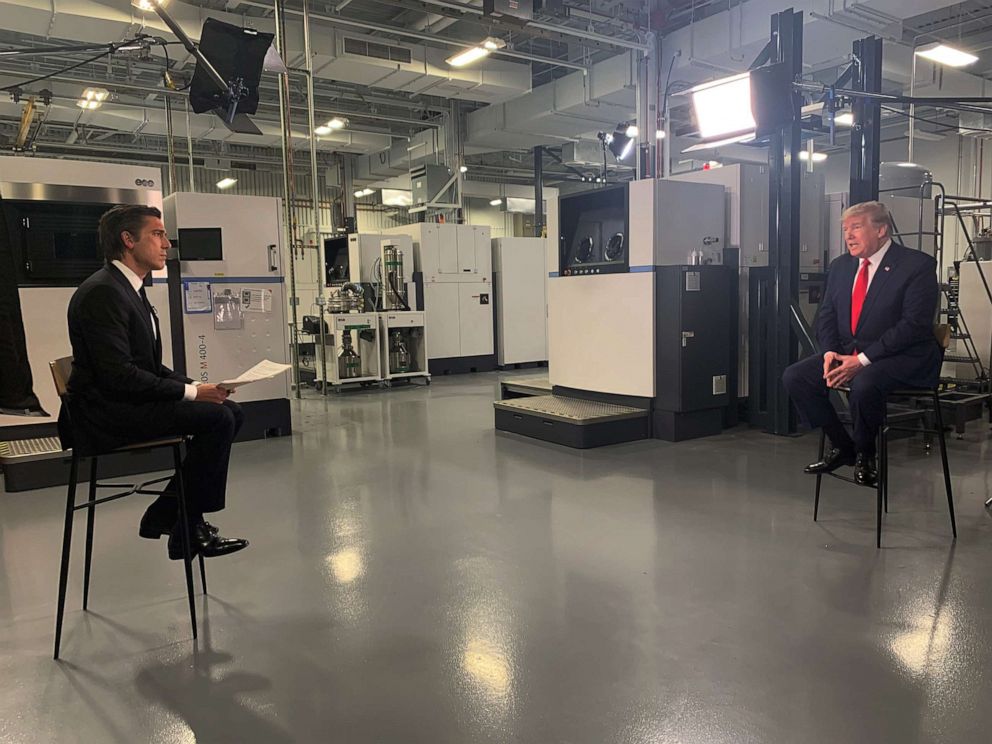In Muir interview, Trump walks back talk of vaccine by year's end, touts progress on therapeutics
On Sunday, he said they were pushing hard for a vaccine by year's end.
President Donald Trump told ABC News anchor David Muir during an exclusive interview that "with or without a vaccine" for COVID-19, the virus would pass "and we're going to be back to normal."
Less than 48 hours after touting, "We think we’ll have a vaccine by the end of this year and we’re pushing very hard," during a Fox News town hall Sunday, the president seemed demure when Muir asked him whether he was still convinced that the U.S. would have a vaccine by year's end as well as 300 million doses.
Tune into ABC at 1 p.m. ET and ABC News Live at 4 p.m. ET every weekday for special coverage of the novel coronavirus with the full ABC News team, including the latest news, context and analysis.
"You can never be convinced," Trump said, walking back his Sunday statement.
"I could say this: We're doing really great," the president said Tuesday. "I get reports every single day, they're doing really great. Am I convinced? I can't be convinced of anything. But I think that we have a really good shot of having something very, very substantial. ... I've been watching a lot of people where their lives were saved. There's a lot of great things happening."
Trump pointed to "therapeutics," drugs that treat the virus, which he said he liked more because it solved the current problem with COVID-19 cases.

"The vaccines are great, but you know the vaccines take longer because of the testing and because of what they have to do. The therapeutics -- we're making tremendous progress on therapeutics," he said.
His comments to Muir came less than a week after the president took personal responsibility over Operation Warp Speed, aimed at finding a vaccine for the coronavirus.
During an Oval Office spray with New Jersey Gov. Phil Murphy, the president repeatedly said he was at the helm, using a metaphor of the scientists and drug manufacturers as "the admiral" and himself as "the general."
"I'm really in charge of it. I could say somebody else, I will say we are dealing with, as you know, the general and the admiral. They are very much in charge. But I think probably more than anything I am in charge," he told reporters, adding, "I get blamed anyway."




